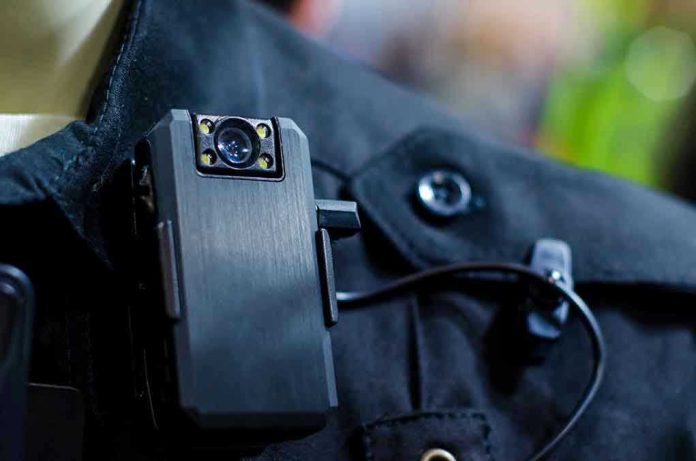
What happens when a 911 call for help becomes a fatal encounter with law enforcement, and an Illinois jury must decide if justice can truly be served?
Story Snapshot
- A former Illinois deputy was convicted of second-degree murder in the shooting death of Sonya Massey.
- Massey, a Black woman, had called 911 seeking help before the confrontation that ended her life.
- Sean Grayson, the ex-deputy, faces up to 20 years in prison at his sentencing.
- The case raises urgent questions about police response, accountability, and race in America.
911 Call Ends in Tragedy: The Fatal Encounter
On a July night in Illinois, Sonya Massey dialed 911 looking for help—not for herself, but for a situation she felt unable to handle alone. Instead of assistance, the arrival of Deputy Sean Grayson marked the beginning of a confrontation that would leave Massey dead. The facts were not in dispute: Grayson shot Massey, and she did not survive. What gripped the community and later the jury was why it happened, and whether the response fit the threat. The case forced uncomfortable questions about why help sometimes comes armed, and whether the system protects the vulnerable or the powerful.
Illinois had seen its share of contentious police encounters, but Massey’s death struck a deeper nerve. Not only was she unarmed, but the context—a woman seeking help—shattered assumptions about who is at risk during police calls. Prosecutors argued that Grayson’s reaction was not justified by the circumstances. The jury’s verdict of second-degree murder signaled that the community, at least in this courtroom, found the killing to be not only tragic but criminal.
Race, Policing, and Public Perception: The Broader Impact
Sonya Massey’s death tapped into a wider national debate about race and policing. As a Black woman killed by a white officer responding to her call for help, the incident echoed the stories of Breonna Taylor and Atatiana Jefferson. Each case raises the question: are Black Americans safe when seeking help from law enforcement? The conviction of Grayson was seen by some as a rare moment of accountability, but others cautioned that verdicts alone cannot repair systemic distrust. Community leaders highlighted how cases like Massey’s reinforce perceptions that police protection is not distributed equally, and that calling 911 can carry risks for people of color.
The trial itself became a focal point for advocates and critics of police reform. Testimony revealed conflicting accounts of the moments before the shooting. Defense attorneys painted a picture of a chaotic, unpredictable situation, while the prosecution pointed to procedural failures and excessive force. The jury deliberated not only on facts but on the broader meaning of justice in policing. In the end, the second-degree murder conviction—less severe than first-degree, but far from acquittal—suggested a recognition of wrongdoing without labeling it as premeditated.
Justice and Accountability: Sentencing and Aftermath
With the verdict delivered, attention now shifts to sentencing. Sean Grayson faces up to 20 years in prison, but the impact of his actions does not end with the courtroom doors. Massey’s family and supporters argue that the loss cannot be measured in years. For many, the conviction is a step, not a solution. The case provokes ongoing debate about training, oversight, and the standards for using force. Lawmakers and advocacy groups point to Massey’s story when arguing for reforms that could prevent similar tragedies—like de-escalation protocols, mental health response teams, and improved oversight of officer conduct.
The community remains divided. Some feel vindicated by the jury’s decision, believing it shows the system can work. Others remain skeptical, citing the rarity of convictions in police shooting cases and questioning whether this signals real change. The story of Sonya Massey serves as a reminder that legal outcomes do not erase pain, nor do they resolve the larger issues of trust and safety between police and the public.
Sources:
Sean Grayson found guilty of murder in the death of Sonya Massey



